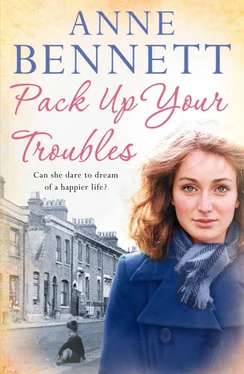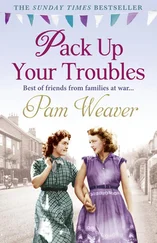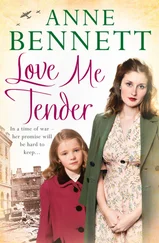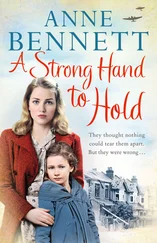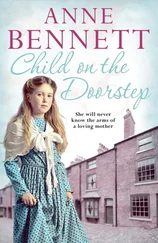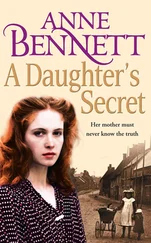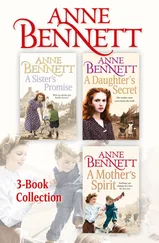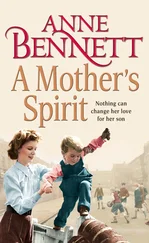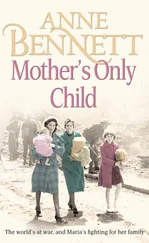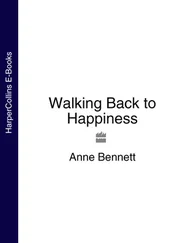Maeve was pleased and relieved at her uncle’s warm greeting. He pushed her extended hand aside and enveloped her in a big hug. His coat was scratchy and smelt of greasy dirt with a hint of tobacco, but none of that mattered. Maeve felt she was with one of her own, and tears of exhaustion and emotion welled up in her eyes. Not that she let them fall. This was her great adventure just beginning – no time for crying and carrying on, she told herself sternly.
She wiped her eyes surreptitiously and turned to the O’Rourkes, who were looking on in satisfaction at the respectable uncle, whom they thought a very suitable man indeed to look after the young Maeve Brannigan.
Michael shook hands with the two people that his niece had introduced him to, and thanked them sincerely for keeping her company. Maeve felt sorry to see them go, but had little time to dwell on it. Her uncle picked up her case and, holding her by the arm, he led her from the station.
She was shocked at the mean little streets, the houses pushed together, that her uncle took her through, after they’d alighted from the clanking swaying tram, which had frightened the life out of her. It wasn’t at all what she’d expected. They alighted at a road called Bristol Street and her uncle turned from there into Belgrave Road and then into Varna Road, which ran off it.
‘Here we are,’ he said suddenly, stopping outside one of the doorways. ‘Come away in and meet the family.’
Aunt Agnes, Michael’s wife, had once been a pretty girl. She still had classic good looks, high cheekbones like Maeve’s own, and deep-set dark brown eyes, with a well-formed nose and a full sensual mouth, and her brown hair fell in natural waves to her shoulders. But Agnes had always been easily offended and upset, and over the years her mouth had become petulant and surly. There was a hard glint in her beautiful eyes, as she’d wanted this niece of her husband’s in her home less than she wanted to fly to the moon.
Maeve smiled, but the words of gratitude that sprang to her lips were stilled by the cold stare and compressed lips of her aunt. Behind her, her uncle was bustling as, she was to learn, he did all the time he was in the presence of his wife. He rubbed his hands together as if he was going to receive a rare and wonderful gift as he said, ‘Aggie, Agnes, this is Maeve.’ As if, Maeve thought, she could be anyone else.
Agnes made no response whatsoever. Afterwards, Maeve was to think the insult had been as bad as if she’d spat on her or ordered her from the house. Suddenly the room seemed to grow chilly. Maeve didn’t know how to respond, and neither did her uncle, she realised. He turned his attention to the two children who were sitting playing snap on the rug placed in front of the hearth.
‘Away out of that, Billy and Jane. Have you not a word of welcome for your cousin?’
The children got to their feet reluctantly. They knew the young girl before them was the one their parents had argued long and hard about. In that house, it was often hard to know whether it was better to please their mother or their father. It was impossible to have a situation that would please the two of them.
‘Hello,’ Billy said.
It was a lacklustre greeting, and Billy saw his father frown on him. He didn’t care much. His father’s hands might be harder than his mother’s, but he never used them on him, whereas his mother . . .
Jane was older than her brother and thought this welcome was a shame for the girl. Her dad had said Maeve was eighteen, but Jane thought she didn’t look it, so she smiled and said, ‘Hello, I’m Jane. D’you want me to help you take your things up to the attic where you’ll be sleeping with me and Billy?’
‘That would be nice,’ Maeve said awkwardly, not sure whether this was the right response or not. She glanced across at her uncle, who nodded at her and she picked up her case. Jane had picked up the other bag, opened the door to the stairs that went off from the living room, and led the way.
Barely had the door closed on the girls when Maeve heard her aunt’s voice for the first time. It rose in an angry screech that she must know would be perfectly audible to them both. Maeve was to find out that in a back-to-back house, if you turned over in bed, the walls were so thin, half the street would be aware of it.
‘How long has she been foisted on us?’ Agnes demanded of her husband.
‘Agnes, we’ve discussed this.’ Though her uncle’s voice was muted, Maeve had not to strain to hear his words. ‘Till she gets on her feet, that’s all.’
‘Till she gets on her feet,’ Agnes sneered. ‘And how am I to feed her on the pittance you bring home?’
‘Surely to God we can do so for a little time. She has a job she’ll start in a few days and then she’ll pay her keep. Isn’t she my own sister’s child?’
‘Aye, and your sister has a tribe of them at home, by all accounts,’ Agnes cried. ‘Are we to fund the whole of them over here one at a time?’
Jane placed the bag on the attic floor. She was flushed with embarrassment, but no more than Maeve was herself. She knew her face must be brick red, for she felt her cheeks burn with it. She’d been going to ask the child why her mother didn’t want her there, but the answer was now apparent.
Then she heard Agnes’s voice again. ‘Are they to be hanging to your coat-tails all the days of your life? My family don’t make demands on you like this.’
‘Your family live around the doors, woman.’ Michael’s voice was loud and angry. ‘They’re never away from the place. God knows, I’ve not seen my family since the day I left.’
Jane looked at Maeve and said, ‘Mom’s worried about money. It ain’t just you, honest. See, our dad was put on short time three weeks ago.’
‘Short time?’
‘He only works three days a week, like,’ Jane explained.
Maeve sat down hard on the bed. Her uncle had never told them that, though he’d written and told her about the job in the café just before she’d left. In fact, she thought, looking around the bare attic, what he had told the Brannigans had not been totally true.
Maeve was glad that she had a bag packed with goodies from the farm, and the five-pound note her mother had pressed her to take.
‘Food will always come in useful, especially fresh stuff,’ Annie had said. ‘Though Michael will hardly need the money – him with his fine job and grand house – I’ll not have it said you’d go anywhere and not offer to pay your way. Give Michael’s wife the money and leave it up to her what she’ll do with it.’
And Maeve knew, as she sat in that attic, that both the food and the money would be welcome, for the fine job was now not so good, and the grand house had never been. The downstairs room, though, was well furnished. Two upholstered armchairs were drawn up before the fireplace and two small stools stood in one corner. There was also a drop-leaf table and four chairs with padded seats, and a matching sideboard. Even the blue-patterned linoleum was not pitted or ripped, and the rug before the fireplace looked fluffy and expensive.
So, once there had been money. Not money enough, perhaps, to lift the family out of the house that had given Maeve such a shock that day, to a better one. But there had been money enough for furnishing at least the one room. Maybe their bedroom too, for though they’d passed her uncle and aunt’s room on the first floor, Maeve wouldn’t have dared, even if Jane hadn’t been with her, to open the door and peep inside. The attic room, with its two iron bedsteads and bare boards, had not been touched much, though there were crisp white sheets and clean blankets on the beds.
‘That’s why our dad was able to meet you today, like,’ Jane said, breaking into her thoughts. ‘’Cos he’s on short time.’
Читать дальше
